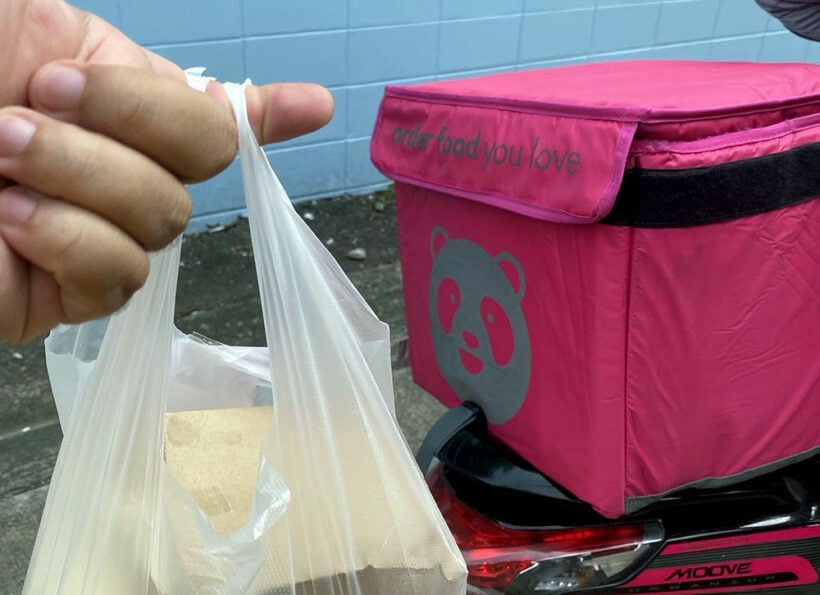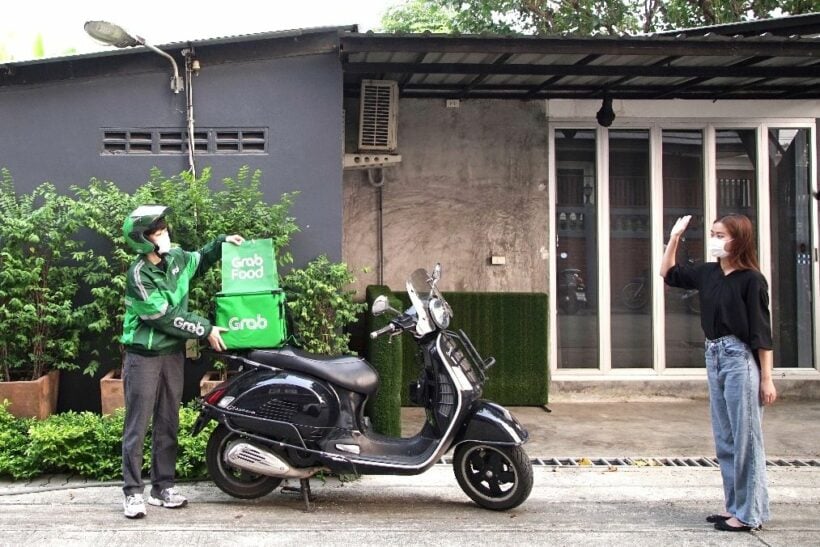Thailand’s food delivery services are booming

Whilst most businesses have been turned upside down by the disruptions caused by the Thai government’s reaction to Covid-19, along with enforced closures, at least one business is booming at this crazy time. With restaurants closed to sit-down customers, the delivery services are providing a valuable service getting food to customers stranded at home whilst applying social distancing for the safety of their drivers and hungry customers.
Food delivery services are among the few local businesses that will not only survive but thrive throughout the outbreak in Thailand. Last year Kasikorn Bank Research reported that Thailand’s food delivery business in 2019 was worth 33-35 billion baht, up 14% from the previous year. You can bet it’s growing even faster now, some reporting rises of up to 100% in the past few months.
A ban came into affect on March 26 preventing people going out and sitting down for meals at restaurants. But restaurants have been able to provide take-away services and many either have their own delivery services or use the network of delivery apps like Food Panda or Grab Food to provide ordering and delivery services.

A 43 year old Grab Food driver says that he’s been doing up to 15 deliveries over a 2 hour period. He’s been doing deliveries for about a year. He noted that the demand for deliveries has surged during the recent disruption. He works mostly around Bangkok’s Pattanakarn area.
“Of course, I’m scared of catching Covid-19, but I have to make a living, so there is no choice left for me. I just wash my hands many times a day and try not to get too close to other people,” he told Bangkok Post.
35 year old Jakkrit Kamwan also works for GrabFood…
“The number of orders has doubled since the government invoked the emergency decree. I don’t think I am at high risk of contracting it because I don’t touch or talk to people when running orders.”
Last week GrabFood introduced the “contactless delivery” to ensure the hygiene and health of customers during the Covid-19 crisis. Tarin Thaniyavarn of Grab Thailand says, “Grab has been closely monitoring the Covid-19 situation and is prepared to execute any necessary measures to promote safety standards for everyone involved.”
GrabFood and its restaurant providers use these safety guidelines…
- Drivers will be wearing face masks as they follow customers’ directions via an in-app chat as to where to deliver their order.
- Safety guidelines in food preparation and packaging.
- Customers are advised to make payments via GrabPay to reduce the transmission risk.
29 year old Pongsatorn Chuaychart, who works for LINE MAN, said its no-contact policy helps to encourage customers who might be reluctant to use a food delivery service for fear of being infected.
“Even more, it make those carrying out the deliveries feel protected. But I’m also taking my own precautions. I plan to keep delivering as long as orders keep coming in. People still have to eat.”
Others industries that are thriving though this really difficult time are the medical industry, medical supplies, hygiene sanitary services and supplies, life and health insurance policies, food packages and digital technology. People are also spending a lot of time online searching for accurate news and information.
SOURCE: Bangkok Post
Latest Thailand News
Follow The Thaiger on Google News:


























